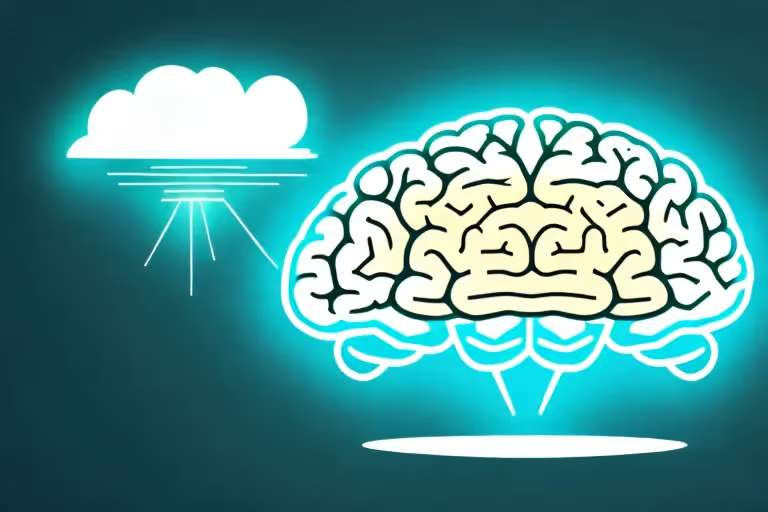Have you ever taken melatonin to help you sleep, only to wake up with a pounding headache? If so, you're not alone. Many people have experienced this unfortunate side effect of melatonin. But is melatonin really to blame? In this comprehensive article, we'll delve into the world of melatonin and headaches, exploring its role, potential triggers, and alternative sleep aids. So, let's unlock the mystery behind melatonin-induced headaches and discover the alternatives you can turn to for a restful night's sleep.
Understanding Melatonin: Its Role and Functions
Before we dive into the connection between melatonin and headaches, it's important to understand what melatonin is and how it works. Melatonin is a hormone naturally produced by our bodies, primarily in the pineal gland of the brain. Its main function is to regulate our sleep-wake cycle, also known as the circadian rhythm. This means that melatonin helps us feel sleepy at night and wakeful during the day.
Aside from its role in sleep regulation, melatonin also has other known effects on the body. It acts as a potent antioxidant, protecting our cells from free radicals. Free radicals are unstable molecules that can cause damage to our cells and DNA, leading to various health problems such as cancer and aging. By neutralizing these free radicals, melatonin helps prevent oxidative stress and supports overall cellular health.
Additionally, melatonin has been shown to have anti-inflammatory properties. Inflammation is a natural response of the immune system to injury or infection. While acute inflammation is an essential part of the healing process, chronic inflammation can have detrimental effects on our health. Studies have suggested that melatonin can help reduce chronic inflammation by inhibiting the production of pro-inflammatory molecules.
Furthermore, melatonin may also play a role in immune function. Our immune system is responsible for defending our bodies against harmful pathogens, such as bacteria and viruses. Research has shown that melatonin can enhance the activity of certain immune cells, such as natural killer cells and T cells, which are crucial for fighting infections and preventing the growth of cancer cells.
However, it's worth noting that the research on these additional effects of melatonin is still ongoing, and more studies are needed to fully understand the benefits of melatonin beyond sleep regulation. Scientists are continuously exploring the potential therapeutic applications of melatonin, including its use in treating various health conditions such as migraines, mood disorders, and even certain types of cancer.
The Connection Between Melatonin and Headaches
Now, let's dig deeper into the relationship between melatonin and headaches. Scientific studies have explored the potential link between melatonin supplementation and headaches, with varying results. Some studies have suggested that melatonin may indeed trigger headaches in some individuals, while others have found no such association.
So, how might melatonin cause headaches? One possibility is that melatonin's sleep-inducing properties could lead to changes in sleep patterns, contributing to the development of headaches. When melatonin is taken at night to aid in sleep, it can alter the sleep-wake cycle, potentially disrupting the natural rhythm of the body. This disruption may lead to headaches in certain individuals, as their bodies struggle to adjust to the changes in sleep patterns.
Another theory is that melatonin itself could directly cause headaches as a side effect, although the exact mechanism is not yet fully understood. Melatonin is a hormone that regulates the sleep-wake cycle, but it also has other effects on the body. It can act as a vasodilator, meaning it widens blood vessels, which could potentially lead to headaches in some individuals. Additionally, melatonin has been found to interact with serotonin, a neurotransmitter involved in pain regulation. Disruptions in serotonin levels can contribute to headaches, and melatonin may influence these levels, thereby affecting headache occurrence.
It's also important to note that the dosage of melatonin could play a role in whether or not headaches occur. Some individuals may be more sensitive to higher doses of melatonin, while others may experience headaches regardless of the dosage. The optimal dosage of melatonin varies from person to person, and finding the right balance is crucial to minimize the risk of headaches.
Furthermore, factors such as pre-existing medical conditions and medication interactions can also influence the relationship between melatonin and headaches. Individuals with certain medical conditions, such as migraines or cluster headaches, may be more prone to experiencing melatonin-induced headaches. Additionally, certain medications, such as antidepressants or beta-blockers, can interact with melatonin and potentially exacerbate headache symptoms.
While the link between melatonin and headaches is still not fully understood, it is clear that individual differences, sleep patterns, dosage, and other factors can all contribute to the occurrence of headaches in some individuals. Further research is needed to fully elucidate the mechanisms involved and to develop personalized strategies for managing headaches in individuals using melatonin supplementation.
Personal Accounts: Melatonin Users Share Their Experiences
While scientific studies provide valuable insights, personal experiences can shed further light on the connection between melatonin and headaches. Some individuals have reported experiencing headaches after taking melatonin, particularly at higher doses. These firsthand accounts highlight the importance of individual variations in response to melatonin.
It's worth mentioning that not everyone who takes melatonin will experience headaches. Many people find melatonin to be an effective sleep aid without any adverse effects, including headaches. The key is to pay attention to your own body's response and adjust your dosage accordingly, in consultation with a healthcare professional if necessary.
Alternatives to Melatonin for Sleep Aid
If you're looking for alternatives to melatonin as a sleep aid, don't worry - there are plenty of natural options to explore. One way to boost your melatonin levels naturally is through lifestyle changes. Maintaining a regular sleep schedule, creating a relaxing bedtime routine, and minimizing exposure to bright lights before bedtime can all contribute to a more restful sleep.
In addition to lifestyle changes, there are other supplements that may help enhance sleep. For example, valerian root and chamomile tea have long been used as natural sleep aids. Both have calming properties that can promote relaxation and improve sleep quality. However, it's important to note that like melatonin, individual responses to these supplements may vary.
Precautions When Using Melatonin
If you decide to try melatonin as a sleep aid, it's important to take certain precautions. Firstly, it's crucial to follow the recommended dosage and usage guidelines. Start with a low dose and gradually increase if needed, under the guidance of a healthcare professional if necessary. This can help minimize the risk of potential side effects, including headaches.
Speaking of side effects, it's essential to be aware of their possibility when using melatonin. While most people tolerate melatonin well, some individuals may experience side effects such as drowsiness, dizziness, or gastrointestinal disturbances. If you experience severe or persistent side effects, it's important to consult a doctor for further evaluation and guidance.
When it comes to melatonin and headaches, it's always a good idea to consult with a healthcare professional, especially if you have a history of migraines or other chronic headaches. They can provide personalized recommendations and guide you in finding the best approach to improve your sleep quality.
When to Consult a Doctor
If you're experiencing frequent or severe headaches, it's important to consult a doctor to rule out any underlying causes. While melatonin-induced headaches can be bothersome, they are usually mild and temporary. However, headaches can sometimes be a symptom of a more serious condition, so it's always best to err on the side of caution.
By understanding the potential link between melatonin and headaches, exploring natural alternatives, and taking necessary precautions when using melatonin, you can make informed decisions about your sleep aid options and work towards a restful night's sleep.
As you embark on your journey to better sleep, consider utilizing the Aura Health App. This innovative app offers a variety of features to enhance your sleep experience, including guided meditations, relaxing sounds, and personalized sleep tracking. It's designed to help you create a bedtime routine and optimize your sleep environment. With the Aura Health App, you can unlock the potential for a blissful night's sleep and wake up feeling refreshed and rejuvenated. Sweet dreams await!
Aura is Your All In One App for Meditation, Mindfulness Wellbeing
Find peace every day with one app for your whole well-being. There is no one-size-fits-all solution to mental well-being. Aura is the first all-in-one wellness app that learns how to best help you. Discover an endless library of expert-created tracks for your well-being, all taught by the world’s best coaches, therapists, and storytellers. With Aura's personalized recommendations, you can find peace every morning, day and night.



.webp)






.avif)

%20(1).avif)


.avif)
.avif)
.webp)


.avif)


















































































































.avif)

















.svg)









